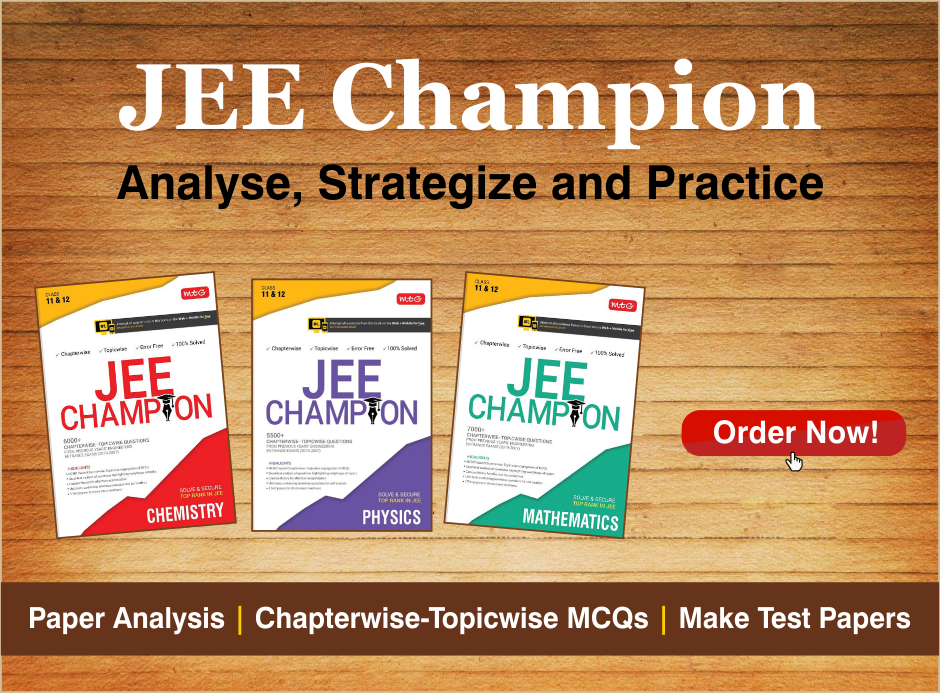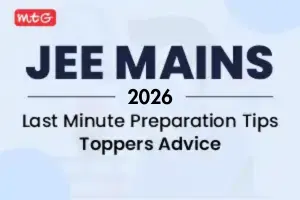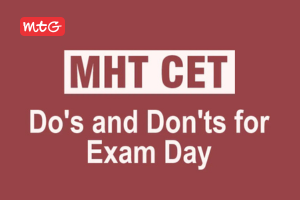Dropping a year to prepare for JEE exam is an option quite a number of students go for. It could be due to dissatisfaction with the preparation or the poor strategy to crack the exam. Whatever may be the reason to drop, the goal is the same: getting enrolled in good engineering college. Since NTA has begun conducting JEE Main exam twice in a year from 2019, JEE candidates have now twice the opportunity to sit for the exam. In a way it is good that now candidates can be little relaxed to be more focused on their preparation. The syllabus and exam pattern remain unchanged.
But, if you couldn’t get the rank or make it to the institute you wish you could have, even after availing both the chances, then don’t worry, we are here to help you! Don’t lose hope, there are many ways to bounce back from failure . We will be discussing everything a dropper should know about JEE Main Preparation, from study habits to overcome demotivation to JEE study plan.
Do you wish to know the success journey of droppers to become doctors? Read our article- NEET Repeaters Succes Stories-From Droppers to Doctors
Given the fact that NTA conducted January Slot nearly coincides with the Class 12 Board exams, a lot many 2019 students must have settled for a drop year to achieve their ambition of making it through the most prestigious engineering institutes in upcoming JEE Main exams 2020. Read on to know how to prepare well through your drop year and stay close to success!
Don’t Let the Social Anxiety Get on You
Don’t bother about what others may think about your decision. Everyone, right from your parents to friends, distant relatives and teachers must have bombarded you with questions and shown apprehension about your decision to take a year off for your JEE preparation. Now is the time to shut out the negativity and focus on your goal. Feed your mind with positive thoughts and belief that you will make it through JEE Entrance exam with flying colours.
Divide Drop Year in 3 Phases-Study Plan for Droppers
Droppers have a lot of extra time as compared to regular class 12th students and so managing time is of utmost importance in the drop year. Moreover, for a JEE Main dropper, the January exam is the best preferred one to attempt as compared to April, which can be kept as a backup. Considering this and your own strong and weak areas, allocate the time of your drop year in 3 phases:
- Phase 1-This time should be devoted to studying and covering JEE Syllabus. The initial months are crucial for every student, since the start lays down the foundation. A dropper must start with the basics and should remember that he/she has to do everything from scratch. The first phase is the longest, will last till October 2019.
- Phase 2- This time should be dedicated for a revision of the concepts covered in Phase 1. It should ideally involve solving any doubts or misconceptions you might have. Phase 2 should end a good 20–25 days before the actual exam.
- Phase 3-In the last phase, you must solve as many test series and mock tests as possible. Ensure that you attempt these tests regularly and that they replicate the actual JEE Main exam in terms of exam pattern and difficulty.
Related Article: Tips to Create the best JEE Preparation Time-Table
Practise Productive Study Habits
One productive hour counts more than five hours of distracted studying. With an exam like JEE Main, any amount of time can seem to be insufficient, but now is the time when the paucity of time becomes a pressing concern. Follow the given productive study habits and see what major difference they can bring in your JEE Main preparation:
- JEE Exam Study Habits should be made in such a way that every chapter is started from scratch and then a lot of JEE Main level questions are practiced. Once the concept is strong, its application should be learned by practicing a good number of questions. After this, you should focus on advanced-level problems. Give time to each question and don’t stick to time limits in the first round of problem-solving.
- Throughout the preparation time, it is important that you mark the difficult questions that either took you awhile to solve or the ones that you couldn’t solve. By doing this, you will always know where to start when revising and you will avoid solving questions that you already know over and over again.
- The daily schedule should be such that each sitting of 2 hours will be followed with a break of at least 15 minutes. Also, try doing at least two subjects daily so that you don’t get bored.
- Every week, keep one day for revision or back log completion.
- Increase the frequency of the tests that you give from the month of November.
- It could prove beneficial if you could study in a group where all are like minded. Since you are dropping a year, you should highly think about hanging out with people who have dropped as well so that you can stay motivated and find company to discuss your preparation strategies.
- Maintain a healthy lifestyle and take a balanced diet to stay productive. A healthy mind lives in a healthy body. Physical health is imperative for mental health.
Read More: How to Solve Difficult Problems in JEE
Practice Previous Years Papers and Mock Tests
As a dropper, you may have already attempted one or may be both the JEE Main exams for the sake of experience, so you already have an idea about the nature of the examination. If not, then referring to JEE previous years’ question papers from MTG’s Explorers will definitely help in this process. In addition to this, you must take MTG’s online test series and mock tests to analyse your exam preparedness.
After attempting these tests, it is absolutely essential for you to analyze the test and go back to both – the questions you have missed and the questions that you scored negatively in. Based on these questions, all you will need to do is to relook at the concepts and take requisite remedial actions.
Besides this, the benefits of solving online mock tests and JEE Explorer can also help in revising the entire syllabus within a fortnight, simply by approaching the topics related to the questions posed in these papers and test series. This means you can fine tune the topics or subjects that you may find yourself lacking before the exam.
Read More: 5 Reasons Why Mock Test Papers are Important
Practise from the right resources
If you think you will make it without getting the right JEE Main resources, don’t even consider it! It is important that this one year of preparation is spent clearing your concepts through the right set of books. MTG gives you the most authentic, well-explained and accurate JEE main Resources.
Apart from the right books, read and re-read from NCERT Textbooks, because many questions in NTA conducted JEE Main exams were directly framed from NCERT books. So, to score good marks in JEE Main you must learn NCERT by heart, for which you must revise from MTG’s NCERT at your Fingertips series .
You can also read MTG Monthly magazine to keep yourself well aware of the need-of-the-time! Read out blog to know What Wonders can MTG Monthly Magazine Do in JEE Preparation.
A candidate can appear in the JEE Exam for 3 consecutive years and hence, it is important that they make each of their attempt count and go through all the important JEE topics thoroughly. Taking a year off to focus on JEE preparation is not unusual. Your conviction for decision and the right approach as discussed here will give fruitful results.
Suggested Read: Do’s and Don’ts of JEE Preparation for Droppers.
































